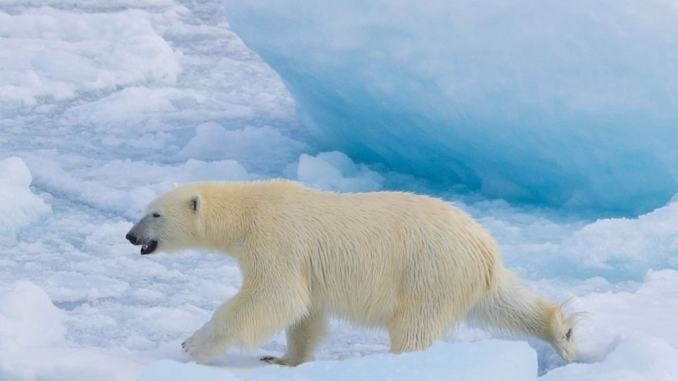
[snip]
It turns out Al Gore, whose fearmongering reportedly nets him $200,000 per speaking engagement, was not only wrong about a 20-foot rise in the global sea level “in the near future,” polar bear drownings, and the snows of Kilimanjaro, but also about the future of Arctic ice.
A paper published this month in the American Geophysical Union’s biweekly peer-reviewed scientific journal Geophysical Research Letters indicated that over the past 20 years, “Arctic sea ice loss has slowed considerably, with no statistically significant decline in September sea ice area since 2005.”
[snip]
The researchers behind the paper — from Columbia University and the University of Exeter — indicated that even with relatively high global temperatures, “climate modeling evidence suggests we should expect periods like this to occur somewhat frequently.

Natural factors, variations in ocean currents in particular, have a tremendous impact in this arena — accelerating, slowing, or reversing ice loss — and have apparently served in recent decades to offset the impact of relatively high global temperatures.
[snip]
While the authors take for granted that ice loss over the past 50 years has been driven in part by “human-induced climate change,” they acknowledged that there was actually significant Arctic sea ice expansion during at least one other period of increasing anthropogenic greenhouse emissions — from the 1940s to the 1970s.
An increase in industrial aerosol emissions from North America and Europe reportedly helped cool the Arctic in the mid-20th century. The very phase-out of exhaust — particularly sulfur emissions — from ships that some environmentalists advocated for appears to have “contributed to enhanced global and Arctic warming since 2020,” said the paper.
[snip]
“It is surprising, when there is a current debate about whether global warming is accelerating, that we’re talking about a slowdown,” Mark England, the researcher who led the study, told the Guardian.
While willing to admit the alarmism of yesteryear was bunkum, England still was sure to tinge his forecast with pessimism.

“The good news is that 10 to 15 years ago when sea ice loss was accelerating, some people were talking about an ice-free Arctic before 2020,” said England. “But now the [natural] variability has switched to largely cancelling out sea ice loss. It has bought us a bit more time, but it is a temporary reprieve — when it ends, it isn’t good news.”
[snip]
While Arctic ice loss has slowed, the Antarctic has been gaining ice in recent years.
According to a 2023 study published in the European Geosciences Union’s peer-reviewed journal the Cryosphere, the Antarctic ice shelf area grew by 2048.27 square miles between 2009 and 2019, gaining 661 gigatonnes of ice mass “with 18 ice shelves retreating and 16 larger shelves growing in area.”
Like Blaze News? Bypass the censors, sign up for our newsletters, and get stories like this direct to your inbox. Sign up here!
* Original Article:
https://www.theblaze.com/news/al-gore-wrong-again-study-delivers-good-news-for-arctic-ice-trends-bad-news-for-climate-hucksters